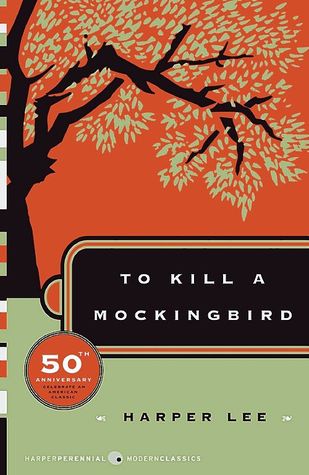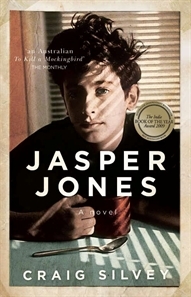Censorship Needed?
- Caitlin Arnold
- Oct 17, 2016
- 4 min read
After teaching a unit in my Year 10 English class on Harper Lee’s To Kill a Mockingbird (1960), I wanted to find a newer YA novel that explored themes of growing up to use for supplementary reading. In my search I found Craig Silvey’s Jasper Jones (2009), which was acclaimed as Australia’s own version of Lee’s classic novel (Schafter, 2016). Perfect.
To Kill a Mockingbird and Jasper Jones, Goodreads.com
Jasper Jones is well written, interesting and confronting from the beginning, perfectly describing life in rural Australia. Perhaps most importantly, it appeals to boys, as the main characters, Charlie Bucktin, Jeffrey Lu and Jasper Jones are all high school boys in very different walks of life. The only thing that worried me was the language.
Using popular culture to engage students in English often means that what is perceived as negative culture is also brought into students’ study materials. Films and television shows with ratings as low as PG often have mild swearing, violence and sexual content. YA fiction often includes sexual content, adult language and violent action. However, high school students also hear swearing and sexual innuendos from their friends, on television and in movies they see outside of class. Despite this, as educators we often think twice before allowing students to analyse or study works of literature or films with any controversial content at all, therefore providing a filtered, or ‘cleaned up’ view of the world for students to discuss. Was censoring Jasper Jones okay?
Proponents against censorship argue that students must be given respect in what they are asked to read. Teachers have the “obligation to expose students to real issues” and that omitting certain books because of our personal morals leads to a slippery slope of censorship, leaving students to lose out on the opportunity to study and analyse a wide variety of real issues in society (Lent, Scales & Pipkin, 2012). In my hesitation to assign Jasper Jones because of the F-words, a C-word and an array of other colourful descriptions, I could be depriving my students the chance to talk about real world challenges. I may be denying students parallels of To Kill a Mockingbird by censoring this Australian version, which may be more valuable than shielding them from the course language Silvey uses to give personality and context to his characters.
Another problem I found with omitting the book, was that Jasper Jones, as are many other books which are censored, is an inherently fascinating book, which I knew students would love reading and would generate valuable discussion. If students were guided through the book, we could discuss the use of language as a characterisation technique and as fitting into the rural, teen boy lifestyle (Censorship dateline: Libraries and schools, 2013). The book would provide opportunity to discuss a real picture of “the ideals, values and problems of [the] culture,” an important role I have as the English teacher (NCTE, 2014). I also know that if students like what they are reading, they will keep reading. “Censorship discourages students to read what they find interesting” (Denzin, 2013). I had to consider the individual contribution the work made to the education of my students, “its aesthetic value, its honesty, its readability for a particular group of students, and its appeal to adolescents” (NCTE, 2014). By choosing another book, I was worried that students would not only miss an opportunity to study a uniquely Australian novel with rich ties to our classic novel, but also lose out on the beautiful and intense reading experience Jasper Jones offers which may then entice them to keep reading other books.
After much thought, I decided to side with author Brendan Ritchie: “It would be a real shame if young readers were denied the opportunity to engage with significant social issues due to the occasional presence of expletives in a book” (Fremantle Press, 2015). Although I will most likely send home a warning email, a permission slip and discuss the language with students before I distribute the book, I have decided that to deny students an educational opportunity based on language is weak. Next year, I’m assigning Jasper Jones.
References
Censorship dateline: Libraries and schools. (2013). Newsletter on Intellectual Freedom (Online), 62(3), 103-104. Retrieved from http://gateway.library.qut.edu.au/login?url=http://search.proquest.com.ezp01.library.qut.edu.au/docview/1439136956?accountid=13380
Denzin, J. (2013). Boundaries for Contemporary Literature: The Role of Censorship and Choice. Journal Of Adolescent & Adult Literacy, 57(1), 7-11. doi:10.1002/JAAL.213
Fremantle Press. (2015). What is the power and the purpose of profanity? Retrieved from https://www.fremantlepress.com.au/c/classroom-express/3803-what-is-the-power-and-the-purpose-of-profanity
Goodreads (2016). Jasper Jones. Retrieved from http://www.goodreads.com/book/show/8407173-jasper-jones
Goodreads (2016). To Kill a Mockingbird. Retrieved from http://www.goodreads.com/book/show/2657.To_Kill_a_Mockingbird
Lee, H. (1960). To Kill a Mockingbird. New York: Warner Books.
Lent, R. C., Scales, P. R., & Pipkin, G. (2012). Language and literacy series: Keep them reading: An anti-censorship handbook for educators Teachers College Press.
NCTE. (2014). The Students’ Right to Read. Retrieved from http://www.ncte.org/positions/statements/righttoreadguideline
Schafter, M. (2016). Jasper Jones, novel dubbed 'Australia's To Kill a Mockingbird', jumps from page to stage. Retrieved from http://www.abc.net.au/news/2016-01-08/jasper-jones-novel-by-craig-silvey-jumps-from-page-to-stage/7077306
Silvey, C. (2009). Jasper Jones. Milton, QLD: Allen & Unwin.




Comments